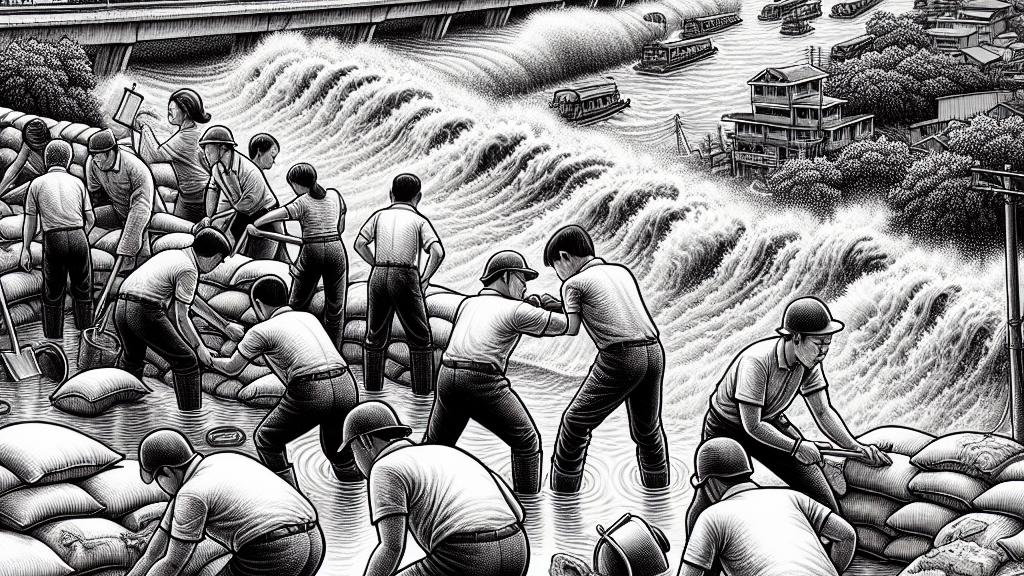When Rivers Rise: Bangkok Braces for the Chao Phraya Overflow Showdown!
Overview
- A severe flood threat looms over Bangkok as heavy rains lead to a rising Chao Phraya River.
- Emergency measures, including the construction of sandbag barriers, are being implemented to protect the city.
- Residents are urged to stay informed and prepared as authorities monitor the situation closely.

Urgent Preparations for Flooding in Bangkok
In Bangkok, Thailand, the looming threat of flooding due to the Chao Phraya River's rising waters has prompted urgent action from local authorities. Following heavy rains in the northern provinces, water levels are surging, causing officials to release up to 1,400 cubic meters per second from the Chao Phraya dam. Disaster management teams are proactively filling sandbags to erect floodwalls along critical areas of the river. These precautionary measures aim to mitigate the potential impact on low-lying neighborhoods and vital infrastructure in the city. Amid these preparations, officials reassured residents that careful monitoring and response plans are in place, though the potential for flooding remains a pressing concern as forecasts predict additional rainfall.
Learning from Historical Flood Disasters
The threat of flooding in Bangkok is not new, with the catastrophic flood of 2011 serving as a stark reminder of the region's vulnerability. During that year, unprecedented rainfall led to extensive flooding across the Chao Phraya basin, resulting in significant economic damage and agricultural losses. Studies from this event have shown that even minor increases in rainfall can lead to disproportionately significant flood inundation due to changes in hydrologic sensitivity. Consequently, there is an urgent need for robust flood management strategies that incorporate advanced forecasting technologies, community awareness, and physical infrastructure improvements that can withstand such natural disasters.
Strengthening Community Resilience Through Technology and Engagement
In conjunction with physical preparations, the Bangkok Flood Control Center is enhancing its capabilities to provide real-time data and rapid updates on flood conditions throughout the city. This centers on improved technology that enables efficient tracking of both rainfall and river levels, crucial for effective disaster response. Meanwhile, flash flood warnings have been issued for northern and northeastern regions, emphasizing the need for public awareness. Authorities are actively engaging the community, encouraging residents to stay informed via official channels and to understand contingency plans for potential evacuations. This partnership between the government and local communities promotes resilience and preparedness, ensuring everyone is equipped to face impending weather challenges.

Loading...